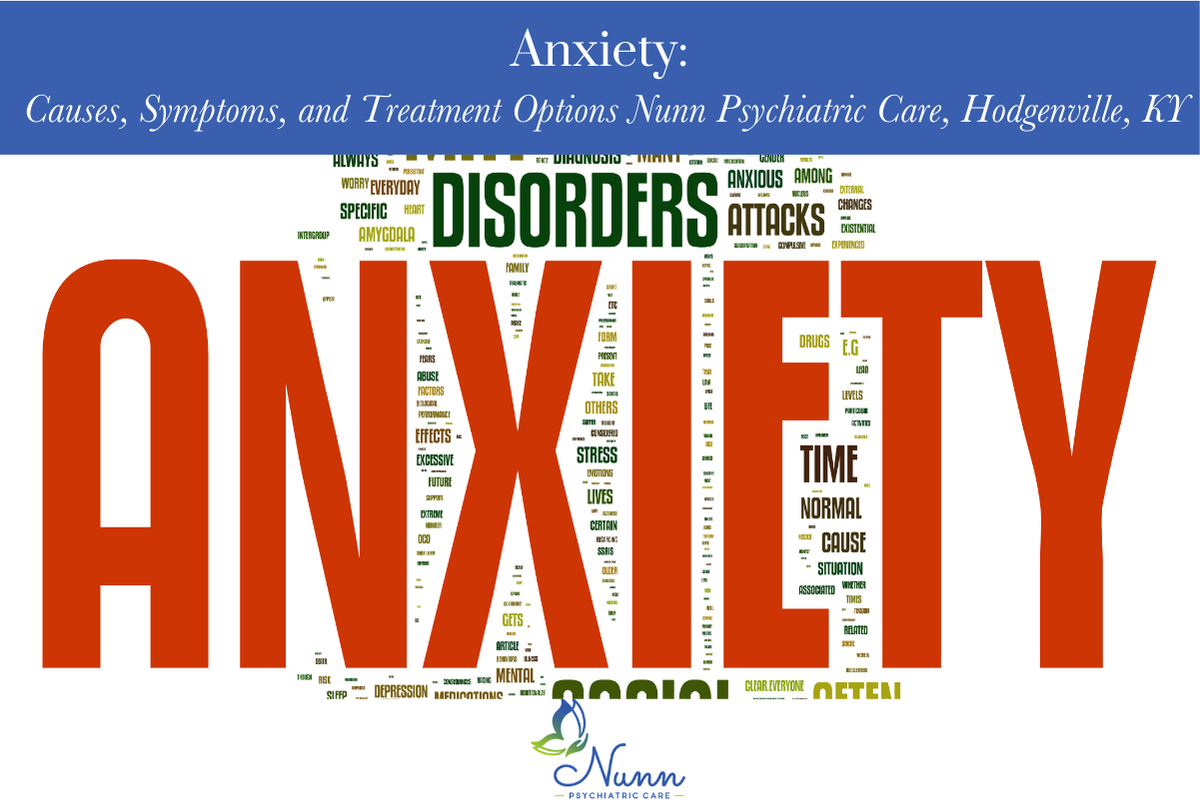
What is Anxiety?
Anxiety is a feeling of fear, worry, or unease. It can range from mild to severe and may manifest as short-term nervousness before an event, or it can be a constant, overwhelming feeling that affects your daily life. Anxiety disorders are mental health conditions where anxiety becomes excessive or uncontrollable, often interfering with a person’s ability to function normally.
Types of Anxiety Disorders
There are several different types of anxiety disorders, including:
- Generalized Anxiety Disorder (GAD): Characterized by chronic and excessive worry about everyday things, even when there is little or no reason to worry.
- Panic Disorder: Recurrent, unexpected panic attacks involving sudden periods of intense fear that may include heart palpitations, sweating, trembling, and feelings of impending doom.
- Social Anxiety Disorder: Intense fear of social situations where one may be judged, embarrassed, or scrutinized by others.
- Specific Phobias: Irrational fears of specific objects or situations, such as heights, flying, or certain animals.
- Obsessive-Compulsive Disorder (OCD): Characterized by repetitive, unwanted thoughts (obsessions) and behaviors (compulsions) that a person feels compelled to perform.
- Post-Traumatic Stress Disorder (PTSD): Anxiety resulting from experiencing or witnessing a traumatic event.
Causes of Anxiety
The exact causes of anxiety disorders are not fully understood, but they are thought to result from a combination of genetic, environmental, and psychological factors. Common contributors include:
- Genetics: A family history of anxiety disorders may increase the risk of developing anxiety.
- Brain Chemistry: Imbalances in neurotransmitters, such as serotonin and dopamine, can affect mood and contribute to anxiety.
- Stressful Life Events: Major life changes, trauma, or ongoing stressors such as work, relationships, or health issues can trigger anxiety.
- Personality Factors: Individuals who are more sensitive to stress or who tend to avoid uncomfortable situations may be more prone to anxiety.
Symptoms of Anxiety
Anxiety symptoms can vary depending on the type of anxiety disorder and the individual. Common physical, emotional, and cognitive symptoms include:
- Physical Symptoms: Increased heart rate, shortness of breath, sweating, trembling, dizziness, stomach issues, fatigue, headaches.
- Emotional Symptoms: Constant worry, irritability, feeling overwhelmed, restlessness, and feelings of dread.
- Cognitive Symptoms: Difficulty concentrating, racing thoughts, indecision, and persistent fear of future events.
Treatment Options for Anxiety
Anxiety is a treatable condition, and with the right care, most people can manage their symptoms and live a fulfilling life. At Nunn Psychiatric Care, we offer a variety of evidence-based treatments tailored to each patient’s unique needs. Here are some of the most effective approaches:
- Therapy:
- Cognitive Behavioral Therapy (CBT): This is one of the most effective forms of therapy for anxiety. CBT helps individuals identify negative thought patterns and behaviors and replace them with healthier responses.
- Exposure Therapy: This therapy is particularly useful for treating phobias and PTSD by gradually exposing patients to their fears in a controlled way to desensitize them.
- Mindfulness and Relaxation Techniques: Techniques like meditation, deep breathing exercises, and progressive muscle relaxation can help reduce anxiety symptoms.
- Medication:
In some cases, medications may be prescribed to help manage anxiety symptoms, especially when therapy alone is not sufficient. Common medications include:- Selective Serotonin Reuptake Inhibitors (SSRIs): Often the first line of treatment for anxiety disorders, SSRIs help regulate serotonin levels in the brain.
- Benzodiazepines: These medications are typically prescribed for short-term relief of severe anxiety, though they may have potential for dependency.
- Beta-Blockers: Used to manage physical symptoms of anxiety, such as rapid heart rate and trembling.
- Lifestyle Changes:
- Regular Exercise: Physical activity is known to reduce stress and improve mood.
- Balanced Diet: Eating a diet rich in nutrients can help stabilize mood and energy levels.
- Sleep Hygiene: Establishing a regular sleep schedule and creating a relaxing bedtime routine can help reduce anxiety.
- Avoiding Stimulants: Limiting caffeine, nicotine, and alcohol can reduce anxiety symptoms.
Comprehensive Q&A Section
Q: How do I know if my anxiety is a disorder or just normal stress?
A: While occasional stress is a part of life, an anxiety disorder involves persistent, excessive worry or fear that interferes with daily activities and does not go away. If your anxiety is impacting your ability to work, socialize, or take care of yourself, it may be time to seek professional help.
Q: Can anxiety go away on its own without treatment?
A: Some mild cases of anxiety may improve over time, especially with positive lifestyle changes. However, moderate to severe anxiety disorders usually require professional intervention to manage symptoms effectively and prevent them from worsening.
Q: Is medication always necessary for treating anxiety?
A: Not necessarily. Many individuals benefit from therapy alone, especially cognitive behavioral therapy (CBT). However, for some people, medication may be necessary to help control symptoms while they work on long-term strategies in therapy.
Q: How can I support a loved one with anxiety?
A: The best way to support someone with anxiety is to listen without judgment, encourage them to seek professional help, and be patient. Avoid telling them to “calm down” or dismissing their feelings as irrational, as this can make them feel misunderstood.
Q: How long does treatment for anxiety typically last?
A: The length of treatment varies depending on the individual and the severity of their symptoms. Some people may experience significant improvement after a few months of therapy, while others may require long-term treatment.
Seeking Help for Anxiety at Nunn Psychiatric Care
If you or a loved one is struggling with anxiety, know that you are not alone. At Nunn Psychiatric Care, we provide compassionate and comprehensive care tailored to your unique needs. Our team is experienced in treating a wide range of anxiety disorders, and we are here to help you on your journey to recovery.
Contact Information:
Nunn Psychiatric Care
113 Lincoln Dr
Hodgenville, KY 42748
Phone: (270) 358-6221
Don’t hesitate to reach out and schedule an appointment today. Relief from anxiety is possible with the right support and treatment.
